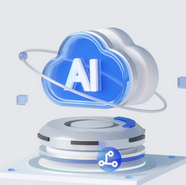人工智能有利也有弊英语翻译
深度学习
2024-06-15 15:00
601
联系人:
联系方式:
阅读提示:本文共计约3028个文字,预计阅读时间需要大约8分钟,由本站编辑整理创作于2023年11月17日18时22分50秒。
Title: The Pros and Cons of Artificial Intelligence
Introduction
Artificial intelligence (AI) is a rapidly advancing field that has the potential to revolutionize various aspects of our lives. From healthcare and education to transportation and entertainment, AI has made significant contributions to various industries. However, like any other technology, AI also has its fair share of advantages and disadvantages. In this article, we will explore the benefits and drawbacks of AI, highlighting both its positive and negative impacts on society.
Advantages of AI
-
Efficiency and productivity: AI systems can process vast amounts of data at incredible speeds, allowing them to make decisions and perform tasks much more quickly than humans. This can lead to increased efficiency and productivity in various sectors, such as manufacturing, finance, and customer service.
-
Cost savings: AI can help businesses save money by automating tasks that were previously performed by human workers. This can lead to reduced labor costs and improved profitability.
-
Personalization: AI algorithms can analyze individual preferences and behaviors, allowing for personalized recommendations and experiences. This can be seen in applications such as online shopping, music streaming, and social media.
-
Safety and security: AI-powered surveillance systems can help prevent crime and enhance public safety. Additionally, AI-driven cybersecurity measures can protect against cyber threats and data breaches.
Disadvantages of AI
-
Job displacement: Automation through AI may result in job displacement, as machines replace human workers. This can lead to unemployment and social unrest.
-
Privacy concerns: AI systems often require access to large amounts of personal data to function effectively. This can raise privacy concerns, as individuals may feel their information is being exploited without their consent.
-
Ethical issues: AI algorithms can be biased if they are trained on data that reflects existing societal inequalities. This can lead to unfair outcomes in areas such as hiring, lending, and law enforcement.
-
Dependence: As society becomes increasingly reliant on AI, there is a risk that we may become overly dependent on technology, leading to a decline in critical thinking and problem-solving skills.
Conclusion
Artificial intelligence offers numerous advantages, from increased efficiency and productivity to personalized experiences. However, it also presents several challenges, including job displacement, privacy concerns, and ethical issues. As AI continues to advance, it is crucial for policymakers, businesses, and individuals to consider both the pros and cons of this transformative technology and work together to mitigate its negative impacts.
本站涵盖的内容、图片、视频等数据系网络收集,部分未能与原作者取得联系。若涉及版权问题,请联系我们进行删除!谢谢大家!
阅读提示:本文共计约3028个文字,预计阅读时间需要大约8分钟,由本站编辑整理创作于2023年11月17日18时22分50秒。
Title: The Pros and Cons of Artificial Intelligence
Introduction
Artificial intelligence (AI) is a rapidly advancing field that has the potential to revolutionize various aspects of our lives. From healthcare and education to transportation and entertainment, AI has made significant contributions to various industries. However, like any other technology, AI also has its fair share of advantages and disadvantages. In this article, we will explore the benefits and drawbacks of AI, highlighting both its positive and negative impacts on society.
Advantages of AI
-
Efficiency and productivity: AI systems can process vast amounts of data at incredible speeds, allowing them to make decisions and perform tasks much more quickly than humans. This can lead to increased efficiency and productivity in various sectors, such as manufacturing, finance, and customer service.
-
Cost savings: AI can help businesses save money by automating tasks that were previously performed by human workers. This can lead to reduced labor costs and improved profitability.
-
Personalization: AI algorithms can analyze individual preferences and behaviors, allowing for personalized recommendations and experiences. This can be seen in applications such as online shopping, music streaming, and social media.
-
Safety and security: AI-powered surveillance systems can help prevent crime and enhance public safety. Additionally, AI-driven cybersecurity measures can protect against cyber threats and data breaches.
Disadvantages of AI
-
Job displacement: Automation through AI may result in job displacement, as machines replace human workers. This can lead to unemployment and social unrest.
-
Privacy concerns: AI systems often require access to large amounts of personal data to function effectively. This can raise privacy concerns, as individuals may feel their information is being exploited without their consent.
-
Ethical issues: AI algorithms can be biased if they are trained on data that reflects existing societal inequalities. This can lead to unfair outcomes in areas such as hiring, lending, and law enforcement.
-
Dependence: As society becomes increasingly reliant on AI, there is a risk that we may become overly dependent on technology, leading to a decline in critical thinking and problem-solving skills.
Conclusion
Artificial intelligence offers numerous advantages, from increased efficiency and productivity to personalized experiences. However, it also presents several challenges, including job displacement, privacy concerns, and ethical issues. As AI continues to advance, it is crucial for policymakers, businesses, and individuals to consider both the pros and cons of this transformative technology and work together to mitigate its negative impacts.
本站涵盖的内容、图片、视频等数据系网络收集,部分未能与原作者取得联系。若涉及版权问题,请联系我们进行删除!谢谢大家!


